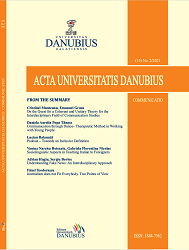Exchange of Intellectual Jabs: Could National Literature Controversies End?
Exchange of Intellectual Jabs: Could National Literature Controversies End?
Author(s): Anthony Njoku, Juliet ElikwuSubject(s): Comparative Study of Literature, Other Language Literature, Politics and communication, Theory of Literature, Sociology of Literature
Published by: Editura Universitară Danubius
Keywords: National literature; Vernacular literatures; Literatures in European languages; Modules one and two;
Summary/Abstract: The yardsticks for ascension to national literature in Africa characterized by multiethnic compositions, cultural and linguistic differences remain controversial. The problem as it were has become a sore spot in African literary scholarship. The language factor seems to be the most critical in the entire polemics while the potential loss of works cast in the modes of European languages prone to disqualification is nightmare dreaded by writers. African intellectuals occupy two distinct semi-circles of opposition camps i.e. those who argue that works in ethnic languages (vernacular literatures) are national literature and those who insist that it is rather those in European languages. African literary scholars have therefore found themselves on the crossroads. Are Vernacular literatures or works in European languages the true national literature? Can intellectual tirades and altercations cease if a neutral stance is taken in the herculean task of founding national literature? This prescriptive essay followed the qualitative approach using Earnest Renan’s “What is a Nation?” as its theoretical framework to carry out the enquiry. It tackled the questions raised in the background and came out with the results that there is national literature module one and module two which neologisms also remain its recommendations. This order derives from the fact that there are two legitimate concepts of nationhood according to Renan. The essay proffers these as solutions to unending and contending sheds of opinions, arguments and controversies on the subject matter that is ever dogging the African literary circle. The study consequently recommends that these two terms be used to separate African literary scholars exchanging intellectual jabs.
Journal: Acta Universitatis Danubius. Communicatio
- Issue Year: 15/2021
- Issue No: 2
- Page Range: 89-107
- Page Count: 19
- Language: English

